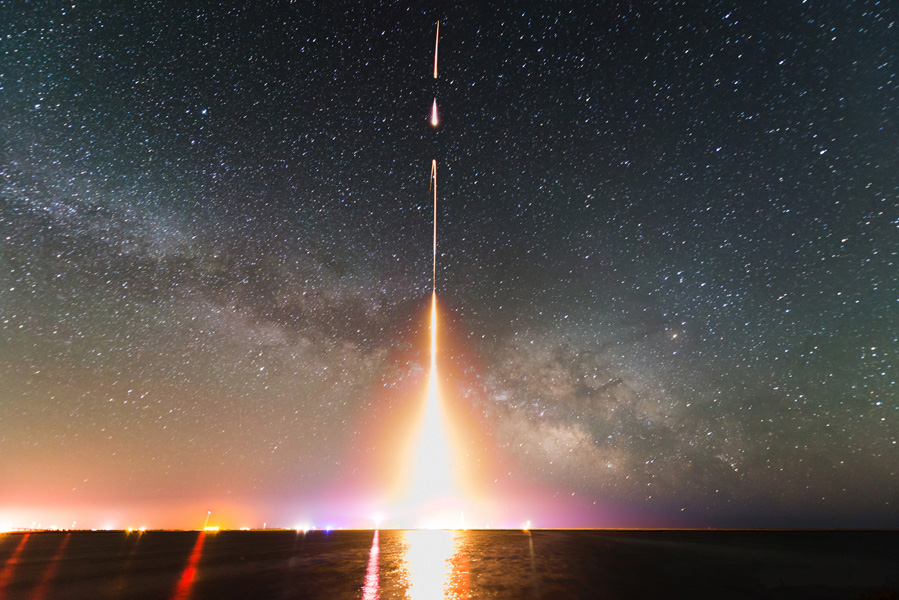JPL: CIBER Finds the Universe Brighter Than We Thought
Posted: Fri Nov 07, 2014 1:37 am
NASA Rocket Experiment Finds the Universe Brighter Than We Thought
NASA Science News | JPL-Caltech | 2014 Nov 06
Caltech Rocket Experiment Finds Surprising Cosmic Light
California Institute of Technology | 2014 Nov 06
On the origin of near-infrared extragalactic background light anisotropy - Michael Zemcov et al
NASA Science News | JPL-Caltech | 2014 Nov 06
A NASA sounding rocket experiment has detected a surprising surplus of infrared light in the dark space between galaxies, a diffuse cosmic glow as bright as all known galaxies combined. The glow is thought to be from orphaned stars flung out of galaxies.
The findings redefine what scientists think of as galaxies. Galaxies may not have a set boundary of stars, but instead stretch out to great distances, forming a vast, interconnected sea of stars.
Observations from the Cosmic Infrared Background Experiment, or CIBER, are helping to settle a debate on the origins of this background infrared light in the universe, previously detected by NASA's Spitzer Space Telescope: Whether it comes from these streams of stripped stars too distant to be seen individually, or from the first galaxies to form in the universe.
"We think stars are being scattered out into space during galaxy collisions," said Michael Zemcov, lead author of a new paper describing the results from the rocket project and an astronomer at the California Institute of Technology (Caltech) and NASA's Jet Propulsion Laboratory in Pasadena, California. "While we have previously observed cases where stars are flung from galaxies in a tidal stream, our new measurement implies this process is widespread." ...
Caltech Rocket Experiment Finds Surprising Cosmic Light
California Institute of Technology | 2014 Nov 06
On the origin of near-infrared extragalactic background light anisotropy - Michael Zemcov et al
- Science 346(6210) 732 (07 Nov 2014) DOI: 10.1126/science.1258168
